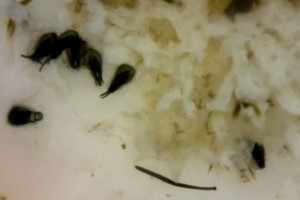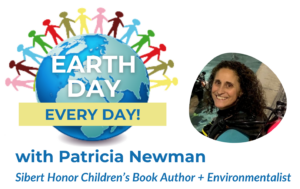It’s been about 10 months since Annie and I traveled to the zoos to research our book. So, we like to touch base with the scientists and give you a little extra exposure to the great work they’re doing.
This week, we step behind the scenes at the Cheyenne Mountain Zoo’s black-footed ferret breeding and reintroduction program with Field Conservation Coordinator Jeff Baughman. As you enjoy Annie’s video of Jeff at work, read his inspiring interview below.
Patricia: Zoo Scientists to the Rescue gives readers a peek inside your job at the zoo and how you support the BFF breeding program. What are your favorite parts of the job?
Jeff: While I love all of the science that I get to do for my job, it is the outcome of kits being born each year for release that is really exciting. Since the gestation of a BFF is 42 days, we know when to expect the kits to be born. The morning a female BFF is due is like being a kid and waking up on Christmas Day. The next best thing is when the kits are old enough to leave Cheyenne Mountain Zoo and go to the pre-conditioning pens [Annie and I called it boot camp in the book] where they learn how to live in the wild before being released. While it is a bit sad to see them go, the feeling is quickly replaced with pride in knowing that we have contributed to a species being returned to nature where it once flourished.
Patricia: You not only breed the ferrets, you sometimes have the opportunity to release them on to the prairie. Can you describe this experience and how it makes you feel?
Jeff: Getting to participate in BFF releases is one of the most joyful aspects of the work. What I enjoy more than doing a release myself is being able to invite other people to partake in a release. These folks are usually other staff, donors, volunteers, or interns who have contributed in some way to behind-the-scenes aspects of the program. Having them join in a release allows for a deeper understanding of the importance of our work and makes a much stronger connection to the BFF and nature.
Patricia: Although the black-footed ferret breeding and reintroduction program is successful, kids are sometimes overwhelmed by the sad stories of endangered species. How would you counsel them to persevere for wildlife?
Jeff: We can easily become sad when we learn about species that are going extinct and it can be very overwhelming and discouraging. But one thing to keep in mind is that every person can commit to changing small behaviors in their daily lives that can help change our world to help wildlife, protect ecosystems and prevent extinctions. In addition to using the [Cheyenne Mountain Zoo] Palm Oil app, we can avoid plastic bags, turn off lights when we leave rooms, make sure we don’t leave water running or dripping, pick up trash, and visit your local zoo to learn about the conservation work they are doing. Chances are they are doing conservation work that you might not be aware of and they might even have education camps or activities to teach you more about how you can help wildlife.
Are you craving more info about BFFs? Try these links:
- Cheyenne Mountain Zoo
- National Black-footed Ferret Conservation Center
- Download the following resources from my website:
- our #ProtectOurWorld Challenge Poster
- Rhino bookmark
- Pinterest activities
- Teacher Guide


![[Image] Zoo Scientists to the Rescue cover and trailer link](https://dnhna1f30c1xr.cloudfront.net/wp-content/uploads/2017/06/ZooScientists_CVR-300x241.jpg)
![[Image] A BFF at ferret boot camp, training for its release into the wild.](https://dnhna1f30c1xr.cloudfront.net/wp-content/uploads/2018/01/Annie-Crawley-Breeding-Facility-1-7575-300x200.jpg)
![[Image] Jeff give his BFFs paper bags for enrichment. They love the crinkly sound!](https://dnhna1f30c1xr.cloudfront.net/wp-content/uploads/2018/01/Annie-Crawley-iFerret-CM-Zoo-7806-300x225.jpg)




Leave a Reply
Your email is safe with me.